*This post may have affiliate links, which means I may receive commissions if you choose to purchase through links I provide (at no extra cost to you). As an Amazon Associate I earn from qualifying purchases. Please read my disclaimer for additional details..
If you want to, you can be as busy as a bee or busy with bees. You wouldn’t have to grow wings, grow a stinger, or make honey to achieve this. But you may need to write application letters and/or get a certificate.
Most of us do not find work to be fun, and that is understandable. However, we believe working is not always uninteresting. So, we compiled a list of some fun jobs you can do that involves working with bees.
Table of Contents
BeeKeeper
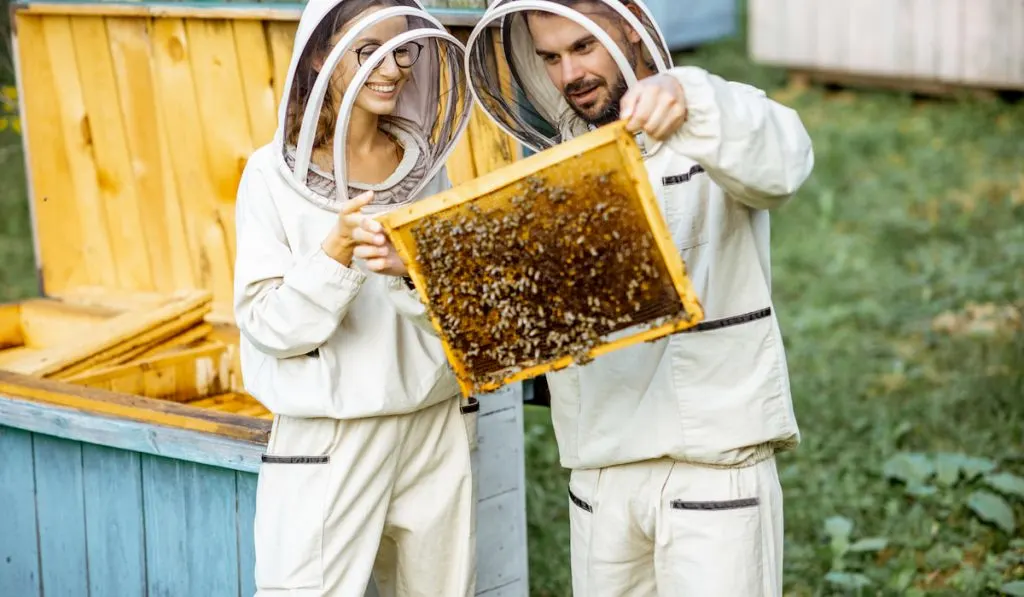
- Salary: $19,000 – $38,000
- Full-time or Part-time: Beekeeping is usually a part-time job, but it could be a full-time job.
- Educational Requirements: There are no educational requirements for the role. But taking apiculture courses will be beneficial.
If your involvement is intensive or if you own the beehive, being a beekeeper might be a full-time job.
If you want to make a lot of profit from your hive or expand it, you will definitely spend most of your time working as a beekeeper. So, it would more or less be a full-time job.
Although there are no educational requirements for you to become a beekeeper, you still have to learn how to carry out the tasks of a beekeeper. You may learn through online resources, or you may learn from expert beekeepers.
Researcher (Postdoctoral Position)
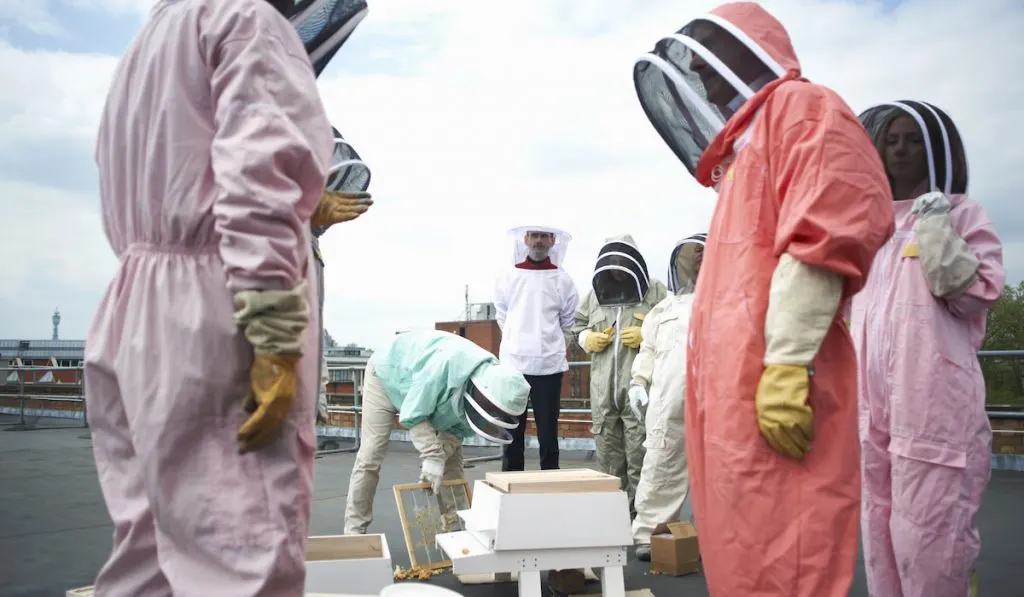
- Salary: $40,000 – $50,000
- Full-time or Part-time: This role is a full-time role.
- Educational Requirements: The minimum educational requirement for this role is a Ph.D. in entomology or related disciplines in biology.
In some cases, the position is for a limited period (a few months or a few years). They might also be grant-funded. So, at the end of the funding period, if there is no renewal, you may have to get a new position.
You could get a new position in the same lab or elsewhere. The research roles usually involve studying bees, their lifestyle, diseases, and many more.
Proficiency in certain biological lab techniques will give you an advantage when applying for the role.
BeeKeeper Assistant/Helper
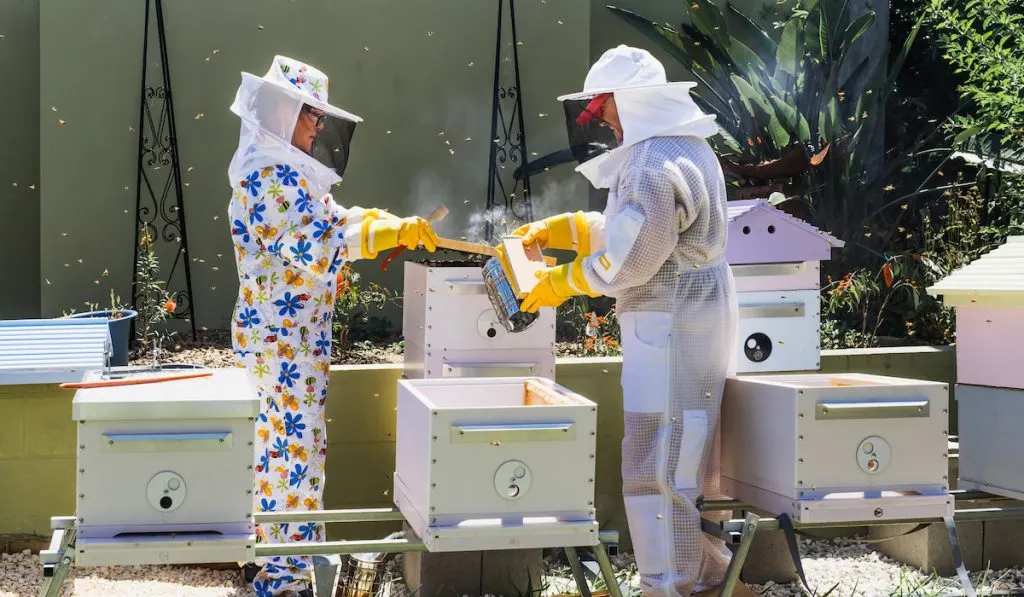
- Salary: $20,000 – $25,000
- Full-time or Part-time: The beekeeping helper role is usually a full-time job, but it could also be a part-time job.
- Educational Requirements: There are no educational requirements for the role.
Your role as a beekeeper helper will involve monitoring bee colonies, facilitating pollination, collecting honey, and much more. The position is basically the role of a beekeeper but with less experience.
Although there are no educational requirements for a beekeeper helper job, taking beekeeping courses will help a lot.
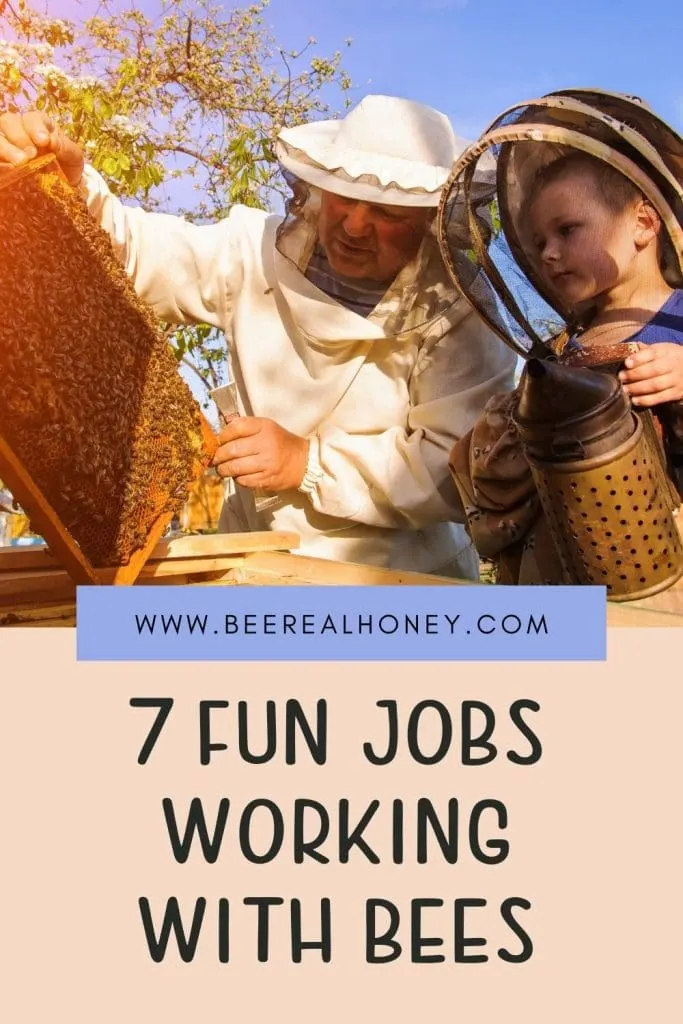
The job might involve a lot of heavy lifting. So, if you do not enjoy physically-demanding activities, the role may not suit you.
You will spend a lot of time outdoors. So, if you love being outside, then this might be fun for you. The job may also require you to have a driver’s license since you’ll be moving a whole lot of things around.
Bee Geneticist (Postdoctoral Research Associate)

- Salary: $43,000 – $59,000
- Full-time or Part-time: This role is a full-time role.
- Educational Requirements: if you intend to apply to this role, you need at least a Ph.D. in relevant fields.
Fields that are relevant to this position include entomology, animal science, molecular biology, genetics, ecology, and other related biology fields.
Since this is an associate role, you will be working with a principal investigator. The principal investigator will be in charge of the activities in the lab while you support this person.
Apart from the knowledge from your field of study, this role may sometimes require knowledge of programming.
Pest Control / Swarm Catcher

- Salary: $13/hour – $17/hour
- Full-time or Part-time: It can be part-time or full-time
- Educational Requirements: Many states require a 3-month training. After the training period, the trainees are issued a certificate.
The training for this role usually involves a mix of on-field training and classroom instructions. The typical daily shift lasts between 8 and 10 hours.
In the course of carrying out your duties, you may have to climb ladders or work on a roof. We take it that if you have a fear of heights, this may not be the fun bee job you’re looking for.
Apiary Inspector
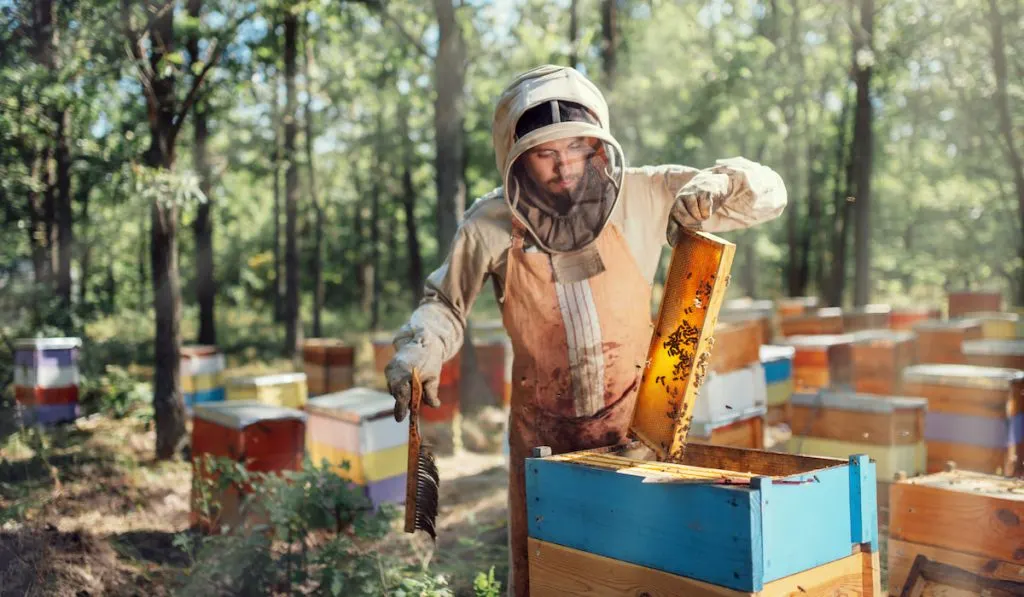
- Average Salary: $35,000
- Full-time or Part-time: It is a full-time role
- Educational Requirements: This role may require at least a year of college course work involving apiculture and a related biological field. Or a short course in beekeeping.
This job requires above-average knowledge of bee diseases and bee handling. Some employers may require some experience working as a beekeeper. But sufficient training, experience, or both will be sufficient in most cases.
The responsibilities of an apiary inspector include paying visits to beehives to verify that the state’s prerequisites for beehives are maintained. Such prerequisites include making sure that people around are safe from the bees.
Another requirement is making sure the bees are healthy and well-maintained. The apiary inspector usually works with the state. They compile reports from their visits, and these reports guide some of the decisions of the state apiary department.
Queen Rearer
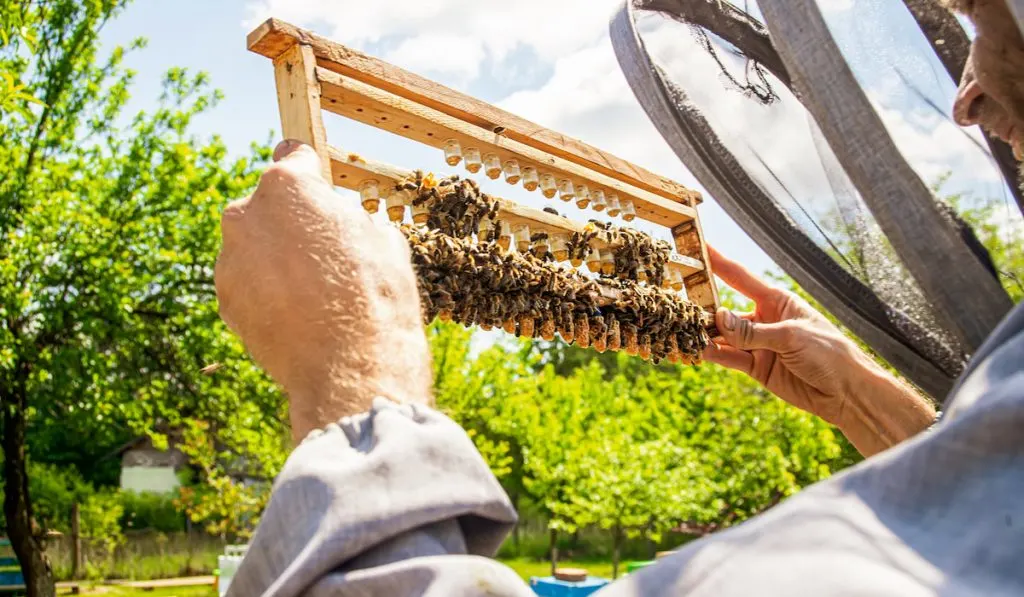
- Salary: $19,000 – $38,000
- Full-time or Part-time: Queen rearing can be a part-time job or a full-time job.
- Educational Requirements: There are no educational requirements for the role, but taking queen rearing courses can be advantageous.
Although they both manage beehives, the queen rearer’s duty is more specific than the beekeeper’s job. The queen rearer focuses on managing only queen bees, while beekeepers are not limited to queen bees.
For this role, you need to have significant beekeeping experience. Queen rearers raise queen bees, and when the queen bees are old enough, they are sold to beehives that need new queen bees.
f course, if you consider the importance of queen bees in beehives, it’s not hard to imagine why queen rearers focus on them alone.
Resources
- https://beehour.com/how-much-work-is-beekeeping/
- https://www.simplyhired.com/salaries-k-beekeeper-jobs.html
- https://coloss.org/jobs/postdoctoral-research-associate-position-available-in-honey-bee-molecular-diagnostics/
- https://www.ziprecruiter.com/e/What-Does-a-Beekeeper-Assistant-Do
- https://www.indeed.com/jobs?q=Beekeeper%20helper&l
- https://work.chron.com/certified-pest-control-12566.html
- https://www.payscale.com/research/US/Job=Apiary_Inspector/Salary
- http://agency.governmentjobs.com/pabureau/job_bulletin.cfm?jobID=2147712&sharedWindow=0
- http://www.buzzingacrossamerica.com/2014/07/careers-in-honey-bees.html

